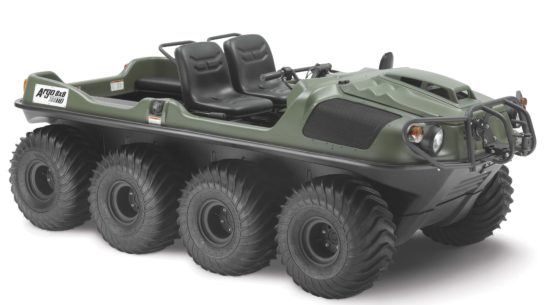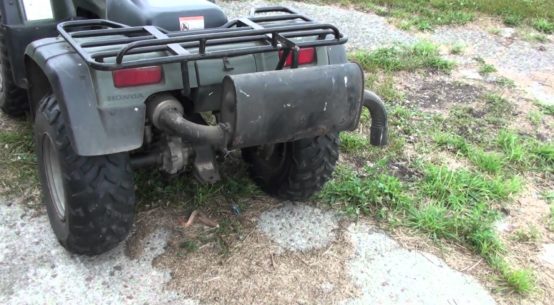
Let’s be honest with ourselves shall we? The off road enthusiasts are not noted generally for their protection of the environment. A whole generation of OHV riders and generations before them were raised with the notion that in a free America we were free to go anywhere and do anything just because we were born free and guaranteed the pursuit of happiness by the Declaration of Independence. No one is suggesting that we are going to lose our freedom or our independence, but the fact is that there has been too many instances of wanton and useless damage to our natural resources, landscapes and public lands. This damage has drawn the attention of wilderness protection groups as well as public land managers.
It is time that we as a sporting and recreational community go on record in favor of the protection of our environment, as well as the various roads and trails that permits access to them. Wanton destruction of natural beauties in any location is absolutely inexcusable. If someone thinks that they can tear off through any previously un-established road or track with impunity, they are sadly mistaken. They will find no pity or support for them from the responsible citizens of the OHV community. People who conduct this type of illegal entertainment deserve to spend time in jail, and there are laws that will permit that time for reflection and restitution.
There are several things that we can do to minimize the impact on the environment. Included below are several suggestions that would aid in our efforts to be responsible users of the public and private lands we are permitted to operate our OHV’s on.
- Demonstrate your concern for the environment by researching the locations where OHV use is permitted and understand the restrictions applicable for that area. For example, don’t ride an ATV on a Motorcycle trail.
- Demonstrate your respect for public authority by obeying all traffic laws and safety practices while going to and from your riding areas. Be courteous and kind to all your fellow travelers all the way along the road and trail to and from your home. Stop and chat with people along the trail. There is always room for another friend.
- Show that you are responsible in your riding practices by being responsible in other ways.
- Be a good citizen – find out which candidates support motorized use of public lands and support them in their campaign for election. This applies to local, regional, state, and national candidates for office. Then get out and vote for such candidates.
- When out on the trail, stay on the trail. When it is necessary to pull to the side of the trail to allow someone to pass, rather than pulling forward back onto the trail, back up into the trail, then proceed forward in the trail. This cuts the possible damage on the trail side by at least one half.
- Become a garbage collector. Humanity has for all time delegated the task of cleaning up to someone else. This is as true of hikers as it is for OHV enthusiasts. Those of us with motorized resources have no excuse but to find the trash left by others and haul it out of there. When everyone uses this same practice the landscape will quickly be transformed from litter to luxurious.
- Volunteer to participate in service projects and terrain reclamation projects. There are many trails that risk being closed simply because they will require a bridge over a natural spring or stream in order to protect the environment. If there is one thing that our opponents don’t do it is volunteer to actually improve an area by cleaning up trash or putting in a drain across a road to eliminate further erosion of an area. They volunteer plenty to stop others from doing what they might enjoy, but I’ve never heard of a wilderness action group actually working on the ground to repair any damage caused by them or anyone else. They even pay their supporters to do the protests. If they dedicated the same amount of money they spend on their protests of our activities, into repairing damaged areas on the ground they would have a much more influential cause.
- Bikers and ATVers enjoy an exciting hill climb. That’s fine, just don’t do it in a place where an established road or trail presently exists. Pioneering new trails is completely illegal.
- Hunters are not permitted to go off the existing road or trail on their ATV or OHV of any kind for the purpose of hauling out their game, or for hunting. It is not legal to shoot from an ATV.
- Share your love for the outdoors with others. Encourage people to follow and obey all recommended ATV safety and environmental restrictions.
- Do not disobey a rule or posted restriction simply because you don’t agree with it. If you don’t agree with a rule or restriction, you should take personal responsibility to work actively to have the inappropriate rule or restriction changed or eliminated. People who disobey because they don’t agree, don’t understand that the greatness of America is based on the innate willingness of our citizens to comply with the laws and rules of the society. Write to the agency that posted the rule or restriction and inform them of your objection to the rule or restriction and give your personal reasons for requesting the restriction or rule be lifted or changed. Offer reasonable suggestions that would alleviate damage and protect the open access to motorized users.
- If you discover areas where the restrictions are not clear or not understandable, notify the manager of that land, so that clarifications can be made.
- Document the fact that OHV use of the forest and deserts in our State are not as invasive to the wildlife as opponents would suggest. How is it that we can ride through a herd of deer, elk and other wild game animals and have them inspect us with interest without bounding away in fear? Of course this means that you must drive your OHV in such a manner as to not be threatening to the animal life. Responsible riding means self-restrained riding.
- There is a time and a place for racing. This will always be with organized racing activities. DO NOT practice your racing skills through areas where no racing activity is scheduled and organized. When not involved in a race, practice self-restraint and enjoy the other wonderful aspects of the OHV sporting opportunity.
- Actually write your congressman, senator, governor, mayor, county commissioners, and all other governmental and managerial offices that have control and influence over the use of motorized vehicles and tell them your own personal reasons for supporting the use of the public lands. Encourage more opportunities, not less.
In time this list may grow to have hundreds of suggestions. This is just a starter. There is no single thing that can or will be done to solve all the issues and problems. The most important thing we can do is to be a part of the solution rather than a part of the problem. It will be by employing all of these suggestions that will bring the greatest possible opportunity for protection of the environment as well as preservation of our opportunities for access to public lands.
Please visit these sites and see what they are all about and what you can do to preserve our rights to that land while preserving the land:






